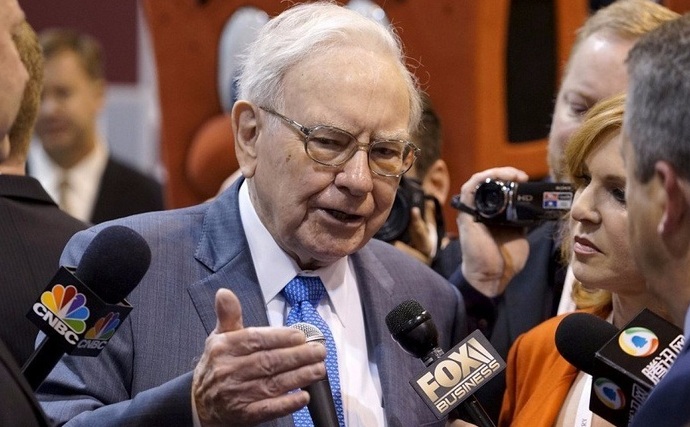
对全球伯克希尔公司的股东而言,参加年度股东大会无异于一次“朝圣”;在全球价值投资者的眼中,巴菲特与芒格是近乎神一样的存在,聆听他们关于投资的观点总会带来非凡的启示。2015年的股东大会上,他俩又说什么妙语了呢?
1.On controlling emotion
“[Investing] is an easy game if you can control your emotions.”Buffett said.
论情绪控制:
巴菲特:“如果你能控制自己的情绪,投资不过是一场简单的游戏。”
2.On investing in general and investing in IBM
“If people weren’t wrong so often, we wouldn’t be so rich,” Munger said.
论一般性投资及针对IBM的投资:
芒格:“如果不是因为其他投资者经常犯错,我们也不可能这么富有。”
3.On donating wealth
“There’s no Forbes 400 in the graveyard,” Buffett said
论捐赠财富:
巴菲特:“墓地里没有‘福布斯400富豪榜’”。
4.On the internet
“I love it… [The internet] has been a huge change in my life and it costs me $100 a year,” Buffett said
论互联网:
巴菲特:“我喜欢互联网… 网络给我的生活带来巨大变化,而且一年得花去我100美元呢。”
5.On economists
“We think any company that has an economist has one employee too many,” Buffett said.
论经济学家:
巴菲特说:“我认为任何一家有经济学家的公司,都有一个多余员工。”
6.On taxes and corporations complaining about them
“I don’t shed any tears for American business [when it complains about taxes],” Buffett said.
论税收及抱怨税收的公司:
巴菲特:“我从不同情那些抱怨税收过重的美国企业。”
7.On German companies
“I will predict we buy at least one German company in the next five years. We’re far more on the radar screen than we were five years ago,” Buffett said.
论德国公司:
巴菲特:“预计今后五年,我们会至少买入一家德国公司。与5年前相比,我们对德国公司更为关注。”
8.On the eurozone
“They created something that’s unwise. You can’t form a business partnership w/your frivolous, drunken brother-in-law,” Munger said.
论欧元区:
芒格:”他们创造了一个不太明智的事物。你就不应该和你那不靠谱、醉醺醺的姻亲兄弟合伙做生意。”
9.On Chinese stock market
“Investment principles do not stop at borders,” Buffett said.
论中国股市:
巴菲特:“(价值投资的)原则不分国界。”
10.On China
“I would not have believed a country of that size could move so far, so fast, The country’s population had found a way to unlock their potential… As Charlie said earlier, China and the United States are going to be the superpowers for as far as the eye can see,” Mr. Buffett said.
论中国:
巴菲特:“我没想到这么大体量的一个国家可以发展得这么好、这么快,中国找到了能释放其潜能的途径。正如查理之前说过的,在可预见的未来,中国与美国将成为超级强国。”
—
本文内容由Will的美语课独家编译自:fool.com, nytimes.com, morningstar.com






